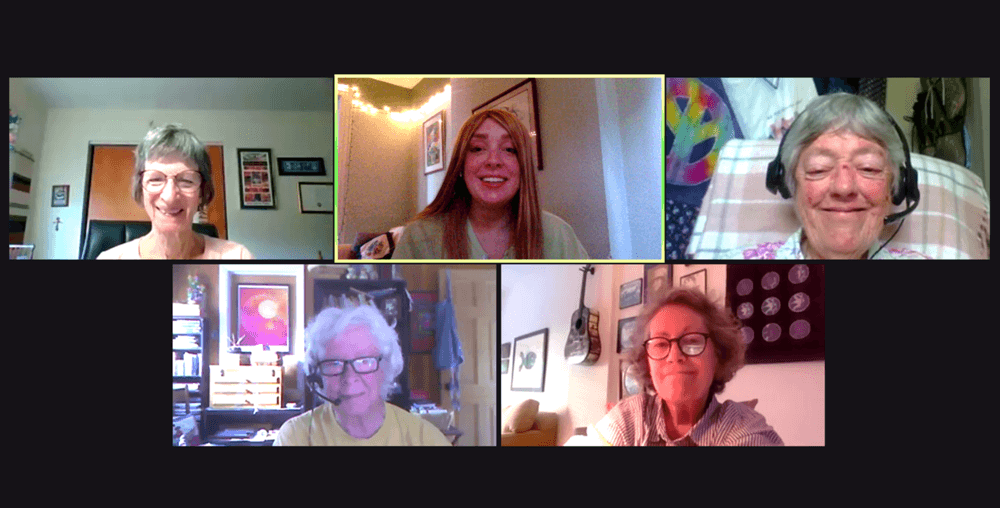What is the Loretto Feminist Network?
Posted on November 1, 2021, by Jean East CoL

Photo By Jax Viteznik
Prior to 2019, this network was known as the Loretto Women’s Network (LWN). It is now the Loretto Feminist Network (LFN). There are important reasons for the expanded name.
For most of us the word feminist conjures up images of the ‘60s and ‘70s. The world was changing, and Loretto was changing with it. Today feminism encompasses much more than it did then, as evidenced in this definition by Angela Davis: “Feminism involves so much more than gender equality, and it involves so much more than gender. Feminism must involve consciousness of capitalism … and racism and colonialism and post colonialities, and ability and more genders than we can even imagine and more sexualities than we ever thought we could name.” (8th Day Center for Justice, 2016, p. 1.)
In the book, “Transforming Feminist Practice: Non-violence, social justice and the possibilities of a spiritualized feminism,” Leela Fernandes writes: “I argue that while the very real hierarchies of identity must be confronted and changed, the politics of identity cannot provide a lasting strategy for transformative social justice.” (2003, p. 27.) For many women, “concepts of justice and equality and indeed feminism are inextricably linked to notions of the sacred … Social transformation requires an explicit engagement with questions of spirituality.” (p. 10.)
LFN believes one of the best ways to promote gender equality is to examine gender from multiple intersections — race, ethnicity, class, country of origin, sexual identity and most important, life experiences. The following perspectives come from stories we have heard that illustrate these identities.
A Black single mother says, “I sometimes feel so alone and overwhelmed. Do I have enough food? Can I make the rent? Will my children be OK?”
“As a woman refugee from Africa, can I learn enough English to be a nurse? Yes, I can get a job doing piece work in a factory, but I want to help others.”
“As an elder, I am privileged to have been blessed in my life. And yet, when I try to get some of my health care needs met, I am dismissed.“
“As a woman in Afghanistan, how can I speak up? It is very frightening, and I am so sad about losing what I have gained. They raided our shelter and my choice is go with the Taliban or return to my abusive husband. I choose the Taliban because even though I am in prison, I am safe.”
A young woman who is sexually assaulted at a college party: “How can I return to my class without feeling so much shame?”
A Native woman loves her community traditions and way of life, but running water would be such a gift, especially when the grandchildren visit.
A homeless woman just cannot leave her tent on the street. It is the only home she has known recently, and going to shelter would mean losing her only companion, her dog Smiley.
“As a woman in Texas barely making it on my cleaning job, I fear for my life if I need to go to Planned Parenthood.”
Being a feminist means understanding the ways that gender intersects with race, ethnicity, class/poverty, sexual identity and age and how systems and institutions of privilege and patriarchy, capitalism, racism and the destruction of our environment and Earth affect one’s life and livelihood.
